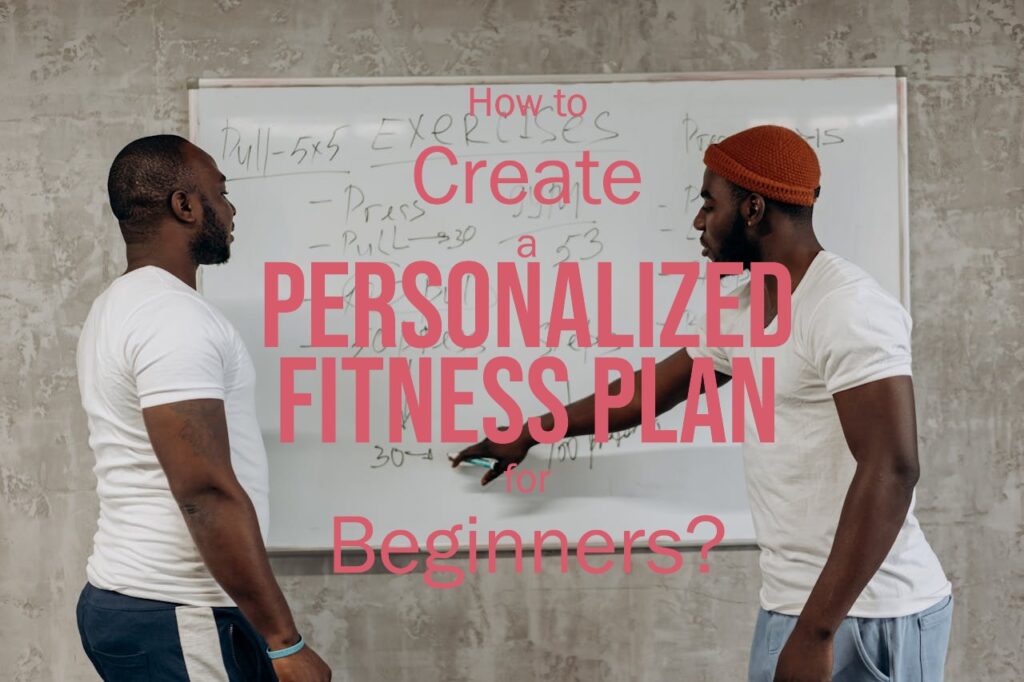
Starting a fitness journey can feel overwhelming, but the good news is that you don’t need to follow a one-size-fits-all approach. A personalized fitness plan tailored to your goals, lifestyle, and fitness level will help you stay motivated and achieve sustainable results. In this guide, we’ll walk you through a step-by-step process to create a plan that works for you.
Step 1: Set Clear and Realistic Goals
Before you start working out, it’s essential to define your fitness goals. Are you looking to lose weight, build muscle, improve endurance, or just stay active? Setting SMART goals (Specific, Measurable, Achievable, Relevant, and Time-bound) will help you track progress and stay focused.
Examples of SMART Goals:
- Weight Loss Goal: “I will lose 10 pounds in 3 months by exercising 4 times a week and following a balanced diet.”
- Muscle Building Goal: “I will gain 5 pounds of lean muscle in 6 months by strength training 3 times a week and increasing protein intake.”
- Endurance Goal: “I will run a 5K in 8 weeks by gradually increasing my running distance and speed.”
Step 2: Assess Your Current Fitness Level
Understanding where you stand physically will help you create a realistic plan. Perform a basic self-assessment by checking:
- How many push-ups, squats, or sit-ups you can do in one minute
- How long you can hold a plank
- Your current stamina for walking, jogging, or running
- Flexibility and mobility levels
This assessment will help you choose workouts that match your current fitness level and prevent injuries.
Step 3: Choose the Right Type of Workouts
Your fitness plan should include a mix of different workout types to ensure balanced progress and prevent boredom.
Workout Categories:
- Cardio (Heart Health & Endurance)
- Walking, jogging, cycling, swimming, jump rope
- Beginner Example: 20-minute brisk walk, 3 times a week
- Strength Training (Muscle Building & Toning)
- Bodyweight exercises, resistance bands, dumbbells
- Beginner Example: 3 sets of 10 squats, lunges, and push-ups
- Flexibility & Mobility (Injury Prevention & Recovery)
- Yoga, stretching, mobility drills
- Beginner Example: 5-minute stretching routine before and after workouts
- Core Workouts (Stability & Strength)
- Planks, crunches, Russian twists
- Beginner Example: 3 sets of 30-second planks
Step 4: Create Your Weekly Workout Schedule
Consistency is key in fitness, so having a structured routine will help you stay on track.
Sample Beginner Workout Plan:
| Day | Workout Type |
| Monday | 20-minute walk + full-body strength (squats, push-ups, lunges) |
| Tuesday | Rest or light stretching/yoga |
| Wednesday | 15-minute jog + core workout (planks, crunches) |
| Thursday | Strength training (lower body focus) |
| Friday | Rest or mobility exercises |
| Saturday | Fun activity (dance, hiking, swimming) |
| Sunday | Full-body stretch & relaxation |
Adjust this schedule based on your lifestyle and fitness level. The key is to start small and gradually increase intensity over time.
Step 5: Fuel Your Body with Proper Nutrition
Exercise alone won’t get you results—you also need to eat well. Focus on:
- Lean proteins (chicken, fish, tofu) for muscle repair
- Healthy carbs (quinoa, brown rice, sweet potatoes) for energy
- Healthy fats (avocados, nuts, olive oil) for overall well-being
- Staying hydrated with plenty of water
Step 6: Track Your Progress and Stay Motivated
Keeping track of your workouts and progress will help you stay accountable. You can use a fitness journal, an app, or take progress photos.
Tips for Staying Motivated:
- Find a workout buddy
- Reward yourself for small milestones
- Listen to podcasts while working out
- Try new workouts to keep things exciting
Conclusion
Creating a personalized fitness plan is all about making fitness work for you. By setting realistic goals, choosing workouts you enjoy, and staying consistent, you’ll build a sustainable and enjoyable fitness routine. Remember, progress takes time—celebrate every step forward, no matter how small!
Are you ready to start your fitness journey? Let us know in the comments what your goals are and how you plan to achieve them.
